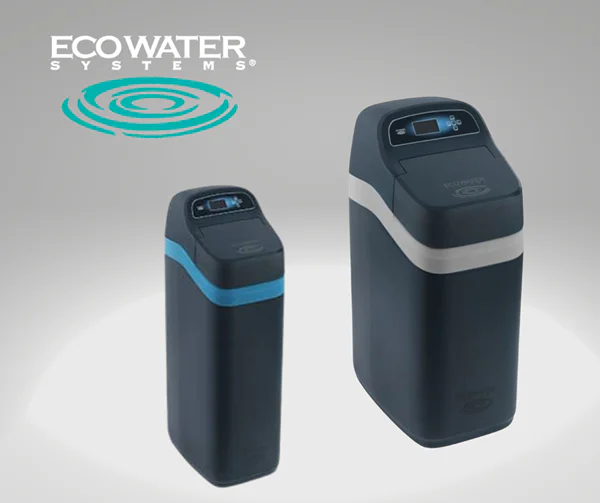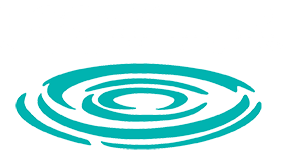Water softeners play a crucial role in maintaining the efficiency of household appliances and the overall quality of water supply. As a homeowner in Calgary, understanding the impact of hard water and the importance of water softeners is essential for preserving the longevity of your plumbing system and ensuring the well-being of your family.
Why Does Calgary Have Hard Water?
 Calgary, like many other regions, is known for having hard water due to high levels of dissolved minerals, particularly calcium and magnesium. These minerals are naturally present in the water supply and can lead to various issues within your home.
Calgary, like many other regions, is known for having hard water due to high levels of dissolved minerals, particularly calcium and magnesium. These minerals are naturally present in the water supply and can lead to various issues within your home.
For Calgary, the water source is primarily derived from the Bow and Elbow Rivers, which originate in the Rocky Mountains. As the water flows through the mountainous terrain, it comes into contact with mineral-rich geological formations, particularly limestone and dolomite. These rocks contain high concentrations of calcium and magnesium salts.
When the water dissolves these minerals, it becomes “hard.” Hard water is identified by elevated levels of calcium and magnesium ions. While hard water is generally safe to drink and use, it can cause issues such as scaling in pipes, reduced soap lathering, and the formation of mineral deposits on household appliances.
Understanding the Impact of Hard Water on Your Home
Hard water can result in limescale buildup in pipes, faucets, and appliances. This can lead to decreased water flow, reduced efficiency of fixtures, and an overall increase in maintenance and repair costs. This is why it is important to have a water softener in your home.
In addition to limescale buildup, hard water can also affect the performance of water-using appliances, such as dishwashers and washing machines. It can cause stains on glassware, dishes, and laundry, while also impacting the effectiveness of soaps and detergents.
How Does Hard Water Affect Household Appliances?
Appliances that utilize water, such as water heaters and washing machines, are particularly susceptible to the negative effects of hard water. The presence of mineral deposits can reduce efficiency, leading to higher energy consumption and potential malfunctions. Here are some ways hard water can impact appliances:
Scale Buildup: The minerals in hard water can accumulate over time to form scale deposits on the heating elements of appliances such as water heaters, dishwashers, and coffee makers. This scale can reduce the efficiency of heating elements, leading to increased energy consumption and potential damage to the appliances.
Reduced Efficiency of Water Heaters: The heating elements in water heaters are particularly vulnerable to scale buildup. The insulating effect of the scale can reduce the efficiency of the water heater, making it less effective in heating water. This reduced efficiency can result in higher energy bills.
Clogged Pipes: The accumulation of scale in plumbing pipes can lead to reduced water flow and eventually clogs. This can affect the performance of appliances that rely on a steady water supply, such as washing machines and dishwashers.
Staining: Hard water can cause stains on dishes, glassware, and fixtures due to the minerals reacting with soap and detergents. It may also leave deposits on showerheads, faucets, and other surfaces.
Appliance Lifespan: The buildup of scale and mineral deposits can contribute to the wear and tear of appliances, potentially shortening their lifespan. This is especially true for appliances that involve heating elements or have water passages.
Do You Need a Water Softener in Calgary?
Recognizing the signs of hard water and evaluating the benefits of using a water softener can help you determine if it’s necessary to invest in this essential system for your home. Whether you need a water softener depends on your personal preferences, the level of hardness in your water, and your tolerance for the potential issues associated with hard water. Calgary is known for having moderately hard water, and many residents choose to use water softeners to address the challenges associated with hardness.
Here are some factors to consider:
Water Hardness Levels: You can contact Ecowater for a free water test to determine the specific hardness level in your area. If the water hardness is above your preferred threshold, a water softener might be beneficial.
Effects of Hard Water: Consider the impact of hard water on your appliances, plumbing, and daily activities. If you notice scale buildup on faucets or showerheads, or if your appliances are showing signs of reduced efficiency, a water softener could help alleviate these issues.
Personal Preferences: Some people are more sensitive to the effects of hard water, such as dry skin and dull hair after showering. If you find these issues bothersome, a water softener might improve the quality of your water.
Cleaning Challenges: Hard water can leave mineral deposits on glassware, dishes, and fixtures, making cleaning more challenging. If you want to simplify cleaning tasks, a water softener could be a valuable addition.
Cost Considerations: Installing and maintaining a water softener involves some cost. Evaluate whether the potential benefits, such as increased appliance lifespan and improved water quality, justify the investment.
Before deciding, it’s advisable to test your water hardness and, if needed, consult with water treatment professionals. They can provide insights into the specific requirements of your household and help you choose the right water softener system if you decide to go that route.
Benefits of Installing a Water Softener
Installing a water softener can lead to numerous benefits, including improved water quality, extended lifespan of appliances, softer skin and hair, and reduced energy and maintenance costs in the long run.
Here are some advantages of having a water softener in your home:
Prevention of Scale Buildup:
- Water softeners help prevent the formation of scale deposits in pipes, faucets, and appliances. Scale buildup can reduce water flow, decrease appliance efficiency, and lead to clogs in plumbing.
Extended Appliance Lifespan:
- Appliances like water heaters, dishwashers, and washing machines often have heating elements that can be affected by scale. By using a water softener, you can extend the lifespan of these appliances by reducing scale buildup and improving their efficiency.
Reduced Energy Consumption:
- When appliances and water heaters are free from scale deposits, they operate more efficiently. This improved efficiency can lead to reduced energy consumption, resulting in potential cost savings on energy bills.
Improved Water Heating:
- Water softeners can enhance the effectiveness of water heaters by preventing scale accumulation on heating elements. This ensures that water heats up more quickly and consistently.
Softer Skin and Hair:
- Softened water is gentler on the skin and hair. It can help alleviate dryness and irritation, providing a more comfortable bathing and showering experience.
Efficient Cleaning:
- Soft water improves the lathering of soaps and detergents, making them more effective. This can lead to better cleaning results in laundry, dishes, and personal hygiene, and potentially reduce the amount of soap and detergent needed.
Reduced Staining:
- Hard water can cause stains on fixtures, glassware, and dishes due to mineral deposits. Water softeners can minimize these stains, making cleaning tasks easier and maintaining the aesthetic appearance of your home.
Easier Maintenance:
- With a water softener in place, you’ll likely experience less maintenance and cleaning of appliances and plumbing fixtures, saving you time and effort.
Improved Water Quality:
- Softened water generally tastes better and can enhance the overall quality of your tap water. This can be particularly beneficial for those who are sensitive to the taste of hard water.
Protecting Plumbing Infrastructure:
- Softened water helps protect the plumbing infrastructure of your home by reducing the risk of scale buildup and corrosion in pipes and fixtures.
Selecting the Optimal Water Softener for Your Calgary Residence
When selecting a water softener system, consider factors such as the size of your household, water usage, and the level of water hardness. Consulting with a professional service can assist in identifying the most suitable system for your specific needs.
Choosing the right water softener for your Calgary home involves considering several factors to ensure that it meets your specific needs. Here are key considerations:
Water Hardness Level:
- Test the hardness of your water to determine the appropriate size and capacity of the water softener you need. The hardness level will help you select a unit that can effectively treat the water in your home.
Water Usage:
- Consider the average daily water usage in your household. The water softener’s capacity should be sufficient to handle the daily water consumption and provide adequate softened water.
Regeneration Type:
- Water softeners regenerate by flushing out accumulated minerals. There are two main types of regeneration: timer-based and demand-initiated regeneration (DIR). DIR systems regenerate based on actual water usage, making them more efficient. Choose a regeneration type that aligns with your household’s water needs.
Size and Space:
- Consider the physical size of the water softener and ensure that you have adequate space for installation. Some units are compact and suitable for smaller spaces, while others may require more room.
Salt-Based vs. Salt-Free Systems:
- Traditional water softeners use salt to regenerate, exchanging calcium and magnesium ions for sodium ions. Salt-free systems use alternative technologies, such as template-assisted crystallization. Salt-based systems are highly effective but may not be suitable for those on low-sodium diets. Salt-free systems are maintenance-friendly but might not provide the same level of softening.
Water Softener Efficiency:
- Look for a water softener with a high-efficiency rating. This ensures that the system uses less water and salt during the regeneration process, reducing overall operational costs.
Maintenance Requirements:
- Consider the maintenance requirements of the water softener. Some systems may require more frequent maintenance, such as adding salt or cleaning the resin tank. Choose a system that aligns with your preferences and maintenance capabilities.
Brand and Reviews:
- Research reputable brands and read customer reviews to gauge the performance and reliability of different water softeners. Recommendations from friends, family, or professionals can also be valuable.
Installation and Warranty:
- Check the installation requirements and whether you’ll need professional installation. Additionally, review the warranty offered by the manufacturer to ensure adequate coverage for your investment.
Cost:
- Consider the upfront cost, operational costs (salt and water usage), and potential long-term savings in terms of increased appliance lifespan and reduced cleaning efforts.
By considering these factors, you can make an informed decision when choosing a water softener that best suits your home’s requirements.
Comparing Water Softener Models
Comparing different water softener models based on their features, warranty, and maintenance requirements allows you to choose a system that aligns with your preferences and long-term water treatment goals.
Here are a few things to consider when looking for the right water softener model:
When comparing water softener models from any manufacturer, including Ecowater, consider the following aspects:
Capacity: Ensure that the water softener’s capacity aligns with your household’s water hardness and usage requirements.
Regeneration Type: Look for systems with demand-initiated regeneration (DIR) for efficiency, regenerating based on actual water usage rather than a preset schedule.
Efficiency Rating: Check the efficiency rating to ensure the system uses less water and salt during the regeneration process, contributing to cost savings.
Size and Installation: Consider the physical size of the unit to ensure it fits within your available space. Check the installation requirements and whether professional installation is recommended.
Maintenance: Evaluate the maintenance needs, including tasks like adding salt, cleaning the resin tank, and overall system upkeep.
Technology and Features: Check for any advanced features, such as digital control panels, water testing capabilities, and smart technology integration.
The Cost of Installing a Water Softener
Understanding the investment and potential savings associated with installing a water softener in Calgary is essential in evaluating the overall value of this beneficial system. The cost of installing a water softener in Calgary can vary based on several factors, including the type of water softener, its capacity, features, and brand.
Cost of Water Softener Unit:
- The price of the water softener unit itself can range from a few hundred dollars to over a thousand dollars, depending on the brand, features, and capacity. High-capacity or advanced models with additional features may cost more.
Water Softener Installation Costs:
- If you choose professional installation, there will be additional costs. Installation costs can vary based on factors such as the complexity of the installation, the type of plumbing in your home, and whether any modifications are needed. Professional installation costs may range from a few hundred to over a thousand dollars.
Water Softener Salt Costs:
- For salt-based water softeners, consider ongoing costs for purchasing salt. The frequency of salt additions depends on water hardness and the size of the softener.
In conclusion, choosing the right water softener for your Calgary home is a crucial step toward ensuring a more efficient, cost-effective, and comfortable living experience. Understanding the specific needs of your household, and considering factors such as water hardness, capacity, and efficiency, will guide you in making an informed decision.
For personalized assistance and expert advice on selecting the perfect water softener tailored to your requirements, don’t hesitate to reach out to our professionals at Ecowater Calgary.
With our extensive knowledge and commitment to water quality solutions, we can help you make the best choice for your home.
Elevate your living experience today—contact Ecowater Calgary and take the first step towards enjoying the benefits of soft, high-quality water in your home.


looking for water softner for a 2 bedroom condo
what would a rough estimate be
Thanks
Don